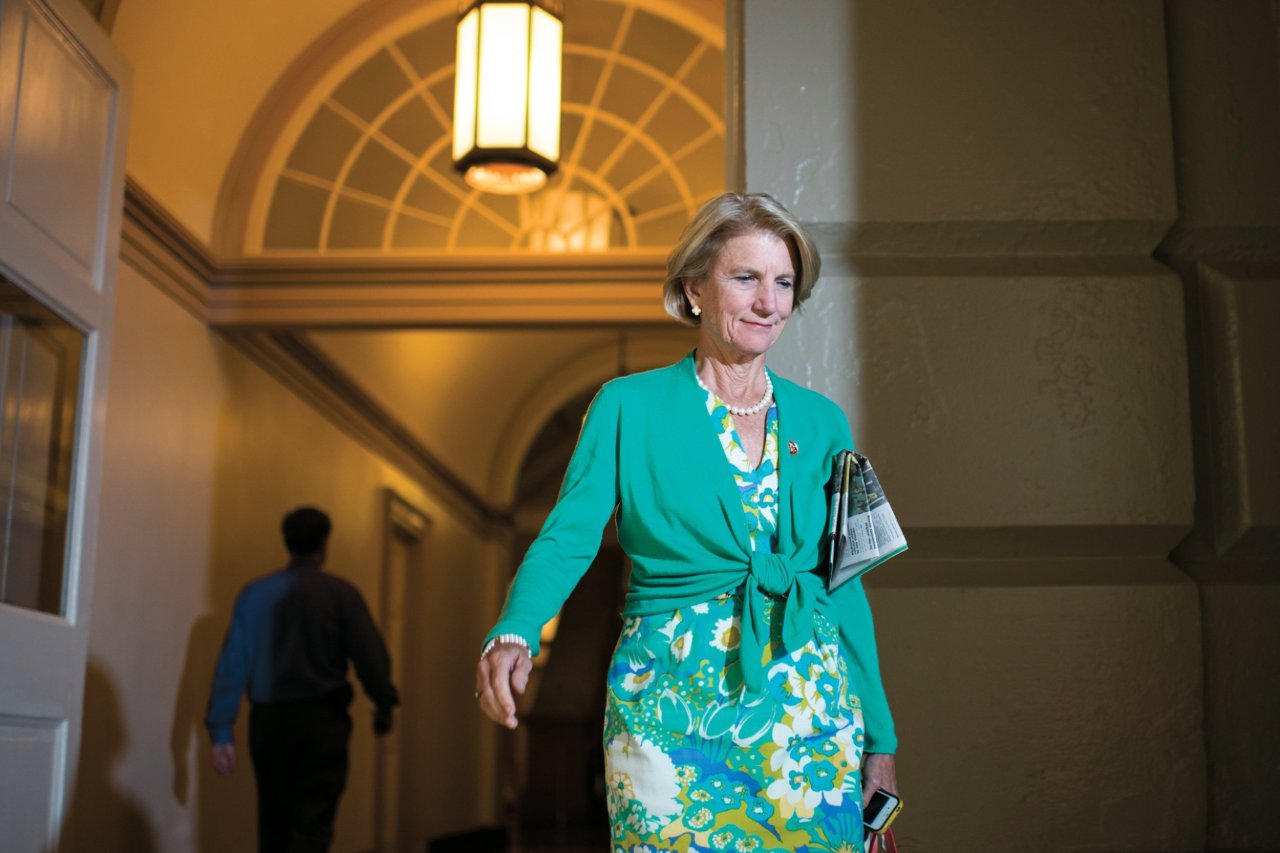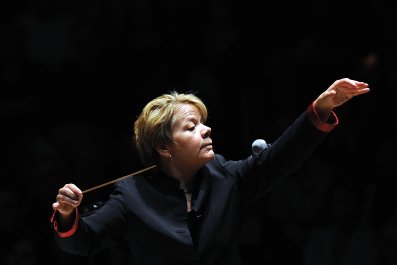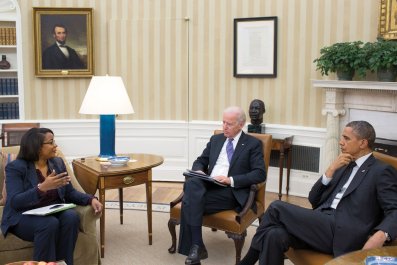Just weeks after winning a seventh term in the House last year, Republican Rep. Shelley Moore Capito of West Virginia announced that she would run for the Senate in 2014. It was a long anticipated move—and it made a lot of political sense. Capito, 59, is the most popular political figure in a state that still has two Democratic senators even though it votes Republican in presidential elections. She is the daughter of three-term governor Arch Moore, who, at 90, is still revered despite having served two years and eight months in prison for corruption. (He maintains his innocence, but that's neither here nor there.)
Democratic Sen. Jay Rockefeller, apparently recognizing that Capito would be a formidable opponent, announced his intention to retire soon after she announced her intention to challenge him. With little Democratic opposition likely, Capito now appears to be a shoo-in for the Senate. But first she must win a Republican primary next May against an Afghanistan veteran, Pat McGeehan, who has the backing of the Republican Liberty Caucus, a libertarian group. The Club for Growth and the Senate Conservatives Fund also oppose her candidacy. Capito's sin? She is too moderate for some of the most hardline members of her party.
"When Shelley announced, the first people attacking her weren't the Democrats, it was these conservative groups," says Steve LaTourette, who served in the House with Capito and now heads the Main Street Partnership, which promotes moderate Republicans. He is setting aside $1 million to spend in the primary if Capito needs it. She should win easily, but the specter of a low-turnout primary leading to an upset of the mainstream candidate is one that haunts Republican politics today. "She's exactly the kind of Republican we need," says LaTourette. "We'll spend what it takes."
Shelley Moore Capito: Too Liberal for West Virginia, a page that launched last week on Facebook, calls her "pro-abortion, pro-bailout and pro-debt." That first allegation isn't entirely accurate. The abortion-rights group NARAL gives her a 30 percent rating, which in their view makes her pro-life; meanwhile, National Right to Life gives Capito 55 percent, counting against her votes for embryonic-stem-cell research and family-planning funding in U.S. aid abroad.
Asked about Capito's stance on abortion, her campaign manager, Chris Hansen, puts her position this way: "Congresswoman Capito has been endorsed by West Virginians for Life since 2008, is against public funding for abortion, against 'partial birth' abortion, and supported the 20-week abortion ban. She has also voted 40 times to repeal Obamacare, but she does not want to overturn Roe v. Wade."
Capito votes with her party 93 percent of the time, which by most people's lights would make her a conservative. "I don't know how you could say with a straight face she's too liberal based on her voting record," says Karen O'Connor, founder of the Women & Politics Institute at American University. Then again, O'Connor, who is a huge fan of Capito, also says she works extremely well with Democrats, even though she rarely votes with them. Last year Capito was named defensive MVP on the bipartisan women's Capitol Hill softball team. Next year her political skills are likely to be rewarded.
























